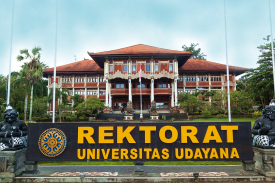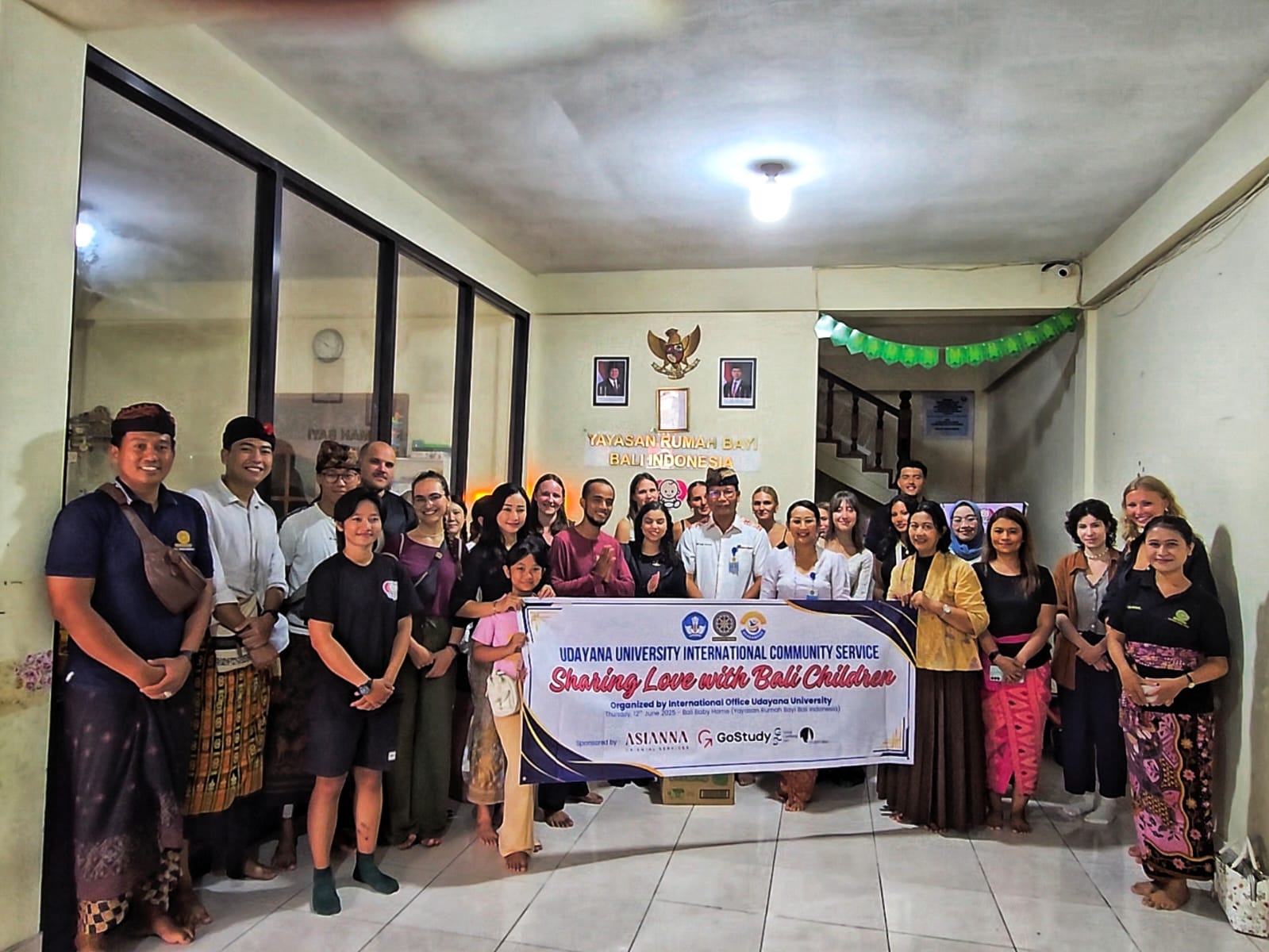Health and Safety
Treatment for minor injuries and common traveller’s health problems is easily accessed in Bali. For serious conditions, you will need to leave the island. It’s important to note certain precautions you should take on Bali, especially in regard to rabies, mosquito bites and the tropical sun. The advice we provide is a general guide only and does not replace the advice of a doctor trained in travel medicine.
Before You Go
Make sure all medications are packed in their original, clearly labelled containers. A signed and dated letter from your physician describing your medical conditions and medications (including generic names) is also a good idea. If you are carrying syringes or needles, be sure to have a physician's letter documenting their medical necessity. If you have a heart condition ensure you bring a copy of an electrocardiogram taken just prior to travelling.
If you take any regular medication bring double your needs in case of loss or theft. You can buy many medications over the counter without a doctor's prescription, but it can be difficult to find some of the newer drugs, particularly the latest antidepressant drugs, blood-pressure medications and contraceptive pills.
Health Insurance
Unless you are definitely sure that your health coverage at home will cover you in Bali, you should take out travel insurance; bring a copy of the policy as evidence that you're covered. It's a good idea to get a policy that pays for medical evacuation if necessary (which can cost US$100,000).
Some policies specifically exclude 'dangerous activities', which can include scuba diving, renting a local motorcycle and even trekking. Be aware that a locally acquired motorcycle licence isn't valid under some policies.
Medical Checklist
- Recommended items for a convenient personal medical kit (other items can be easily obtained on Bali if needed):
- antibacterial cream (eg muciprocin)
- antihistamine – there are many options (eg cetirizine for daytime and promethazine for night)
- antiseptic (eg Betadine)
- contraceptives
- DEET-based insect repellent
- first-aid items such as scissors, bandages, thermometer (but not a mercury one) and tweezers
- ibuprofen or another anti-inflammatory
- steroid cream for allergic/itchy rashes (eg 1% to 2% hydrocortisone)
- sunscreen and hat
In Bali
Infectious Diseases
Dengue Fever
This mosquito-borne disease is a major problem on Bali. As there is no vaccine available it can only be prevented by avoiding mosquito bites. The mosquito that carries dengue bites day and night, so use insect avoidance measures at all times. Symptoms include high fever, severe headache and body ache (dengue was previously known as 'breakbone fever'). Some people develop a rash and experience diarrhoea. It's vital to see a doctor to be diagnosed and monitored.
AVOIDING MOSQUITO BITES
Travellers are advised to prevent mosquito bites by taking these steps:
- Use a DEET-containing insect repellent on exposed skin. Wash this off at night, as long as you are sleeping under a mosquito net. Natural repellents such as citronella can be effective, but must be applied more frequently than products containing DEET.
- Sleep under a mosquito net impregnated with permethrin.
- Choose accommodation with screens and fans (if not air-conditioned).
- Impregnate clothing with permethrin in high-risk areas.
- Wear long sleeves and trousers in light colours.
- Use mosquito coils.
- Spray your room with insect repellent before going out for your evening meal.
If you are going to an area where there is a malaria problem, consult with a clinic about the various prescription drugs you can use to reduce the odds that you'll get it.
Rabies
Rabies is a disease spread by the bite or lick of an infected animal, most commonly a dog or monkey. Once you are exposed, it is uniformly fatal if you don't get the vaccine very promptly. Bali has had a major outbreak dating to 2008 and people continue to die each year.
To minimise your risk, consider getting the rabies vaccine, which consists of three injections. A booster after one year will then provide 10 years' protection. This may be worth considering given Bali's rabies outbreak. The vaccines are often unavailable on Bali, so get them before you go.
Also, be careful to avoid animal bites. Especially watch children closely.
Malaria
The risk of contracting malaria is greatest in rural areas of Indonesia. Generally malaria is not a concern on Bali or in the main touristed areas of Lombok. Consider precautions if you are going into remote areas or on side trips beyond Bali.
Two strategies should be combined to prevent malaria: mosquito avoidance and antimalarial medications. Most people who catch malaria are taking inadequate or no antimalarial medication.
Typhoid
This serious bacterial infection is spread via food and water. Its symptoms are a high and slowly progressive fever, headache and possibly a dry cough and stomach pain. It is diagnosed by blood tests and treated with antibiotics. Vaccinations are 80% effective and should be given one month before travelling to an infected area.
Traveller's Diarrhoea
Traveller's diarrhoea (aka Bali belly) is by far the most common problem affecting travellers – between 30% and 50% of people will suffer from it within two weeks of starting their trip. In over 80% of cases, traveller's diarrhoea is caused by bacteria (there are numerous potential culprits) and therefore responds promptly to treatment with antibiotics.
Traveller's diarrhoea is defined as the passage of more than three watery bowel actions within 24 hours, plus at least one other symptom such as fever, cramps, nausea, vomiting or feeling generally unwell.
Treatment
Loperamide is just a 'stopper' and doesn't get to the cause of the problem. However, it can be helpful, for example, if you have to go on a long bus ride. Don't take Loperamide if you have a fever or blood in your stools. Seek medical attention quickly if you do not respond to an appropriate antibiotic.
- Stay well hydrated; rehydration solutions such as Gastrolyte are the best for this.
- Antibiotics such as Norfloxacin, Ciprofloxacin or Azithromycin will kill the bacteria quickly.
Giardiasis
Giardia lamblia is a parasite that is relatively common in travellers. Symptoms include nausea, bloating, excess gas, fatigue and intermittent diarrhoea. The parasite will eventually go away if left untreated but this can take months. The treatment of choice is Tinidazole, with Metronidazole being a second-line option.
Environmental Hazards
Sunburn
Even on a cloudy day, sunburn can occur rapidly, especially near the equator. Don't end up like the dopey tourists you see roasted pink on Kuta Beach. Instead:
- Use a strong sunscreen (at least SPF 30).
- Reapply sunscreen after a swim.
- Wear a wide-brimmed hat and sunglasses.
- Avoid baking in the sun during the hottest part of the day (10am to 2pm).
Diving
Divers and surfers should seek specialised advice before they travel to ensure their medical kit contains treatment for coral cuts and tropical ear infections, as well as the standard problems. Divers should ensure their insurance covers them for decompression illness – get specialised dive insurance if necessary.
Divers should note that there is a decompression chamber in Sanur, which is a fast-boat ride from Nusa Lembongan. Getting here from north Bali can take three to four hours.
Heat
Bali is hot and humid throughout the year. It takes most people at least two weeks to adapt to the hot climate. Swelling of the feet and ankles is common, as are muscle cramps caused by excessive sweating. Prevent these by avoiding dehydration and excessive activity in the heat. Be careful to avoid the following conditions:
Heat exhaustion Symptoms include weakness, headache, irritability, nausea or vomiting, sweaty skin, a fast, weak pulse and a normal or slightly elevated body temperature. Treatment involves getting out of the heat and/or sun, fanning the victim and applying cool wet cloths to the skin, laying the victim flat with their legs raised, and rehydrating with water containing one-quarter of a teaspoon of salt per litre. Recovery is usually rapid and it is common to feel weak for some days afterwards.
Heatstroke A serious medical emergency. Symptoms come on suddenly and include weakness, nausea, a hot dry body with a body temperature of over 41°C, dizziness, confusion, loss of coordination, fits and eventually collapse and loss of consciousness. Seek urgent medical help and commence cooling by getting the person out of the heat, removing their clothes, fanning them and applying cool wet cloths or ice to their body, especially to hot spots such as the groin and armpits.
Prickly heat A common skin rash in the tropics, caused by sweat being trapped under the skin. The result is an itchy rash of tiny lumps. Treat by moving out of the heat into an air-conditioned area for a few hours and by having cool showers.
Skin Problems
Fungal rashes There are two common fungal rashes that affect travellers. The first occurs in moist areas that get less air such as the groin, armpits and between the toes. It starts as a red patch that slowly spreads and is usually itchy. Treatment involves keeping the skin dry, avoiding chafing and using an antifungal cream such as Clotrimazole or Lamisil. Tinea versicolor is also common – this fungus causes small, light-coloured patches, most commonly on the back, chest and shoulders. Consult a doctor.
Cuts & scratches These can easily get infected in tropical climates so take meticulous care of any cuts and scratches. Immediately wash all wounds in clean water and apply antiseptic. If you develop signs of infection see a doctor. Divers and surfers should be careful with coral cuts because they become easily infected.
Bites & Stings
During your time in Indonesia, you may make some unwanted friends.
Bedbugs These don't carry disease but their bites are very itchy. They live in the cracks of furniture and walls and then migrate to the bed at night to feed on you as you sleep. You can treat the itch with an antihistamine.
Jellyfish Most are not dangerous, just irritating. Stings can be extremely painful but rarely fatal. First aid for jellyfish stings involves pouring vinegar onto the affected area to neutralise the poison. Do not rub sand or water onto the stings. Take painkillers, and anyone who feels ill in any way after being stung should seek medical advice.
Ticks Contracted after walking in rural areas, ticks are commonly found behind the ears, on the belly and in armpits. If you have had a tick bite and experience symptoms such as a rash at the site of the bite or elsewhere, fever or muscle aches, you should see a doctor.
Availability & Cost of Health Care
In south Bali and Ubud there are clinics catering to tourists, and just about any hotel can put you in touch with an English-speaking doctor.
International Medical Clinics
For serious conditions, foreigners are best served in the costly private clinic BIMC, which caters mainly to tourists and expats. Confirm that your health and/or travel insurance will cover you. In cases where your medical condition is considered serious, you may be evacuated by air ambulance to Singapore or beyond; this is where proper insurance is vital because these flights can cost more than US$50,000.
BIMC is on the bypass road just east of Kuta near the Bali Galleria. It's a modern Australian-run clinic that can do tests, hotel visits and arrange medical evacuation. Visits can cost US$100 or more. It has a branch in Nusa Dua.
Hospitals
There are two facilities in Denpasar that offer a good standard of care. Both are more affordable than the international clinics.
BaliMed Hospital On the Kerobokan side of Denpasar, this private hospital has a range of medical services. A basic consultation is 220,000Rp.
RSUP Sanglah Hospital The city's general hospital has English-speaking staff and an ER. It's the best hospital on the island, although standards are not the same as at those in developed countries. It has a special wing for well-insured foreigners, Paviliun Amerta Wing International.
Pharmacies
Many drugs requiring a prescription in the West are available over the counter in Indonesia, including powerful antibiotics.
The Kimia Farma (www.kimiafarma.co.id) chain is recommended. It has many locations, charges fair prices and has helpful staff. The Guardian chain of pharmacies has appeared in tourist areas, but the selection is small and prices can be shocking even to visitors from countries with high prices. Elsewhere you need to be more careful as fake medications and poorly stored or out-of-date drugs are common.
Tap Water
Tap water in Bali is never safe to drink.
Widely available and cheap, bottled water is generally safe but check the seal is intact when purchasing. Look for places that allow you to refill containers, thus cutting down on landfill.
Most ice in restaurants is fine if it is uniform in size and made at a central plant (standard for large cities and tourist areas). Avoid ice that is chipped off larger blocks (more common in rural areas).
Avoid fresh juices outside of tourist restaurants and cafes.
Alcohol Poisoning
There are ongoing reports of injuries and deaths among tourists and locals due to arak (the local spirits that should be distilled from palm or cane sugar) being adulterated with methanol, a poisonous form of alcohol. Although arak is a popular drink, it should be avoided outside established restaurants and cafes.



UDAYANA UNIVERSITY